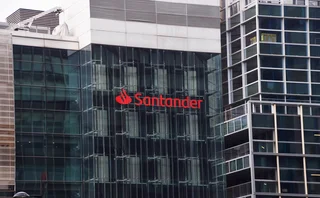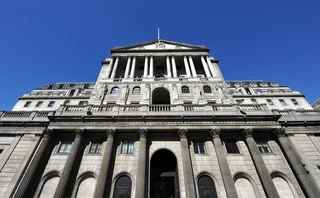Op risk data: Japan’s giant bitcoin break-in makes a monster loss
Also: Citi’s fat-finger fallout; HSBC pays for unfair customer treatment; Visa and Mastercard fined over ATM fee-fixing. Data by ORX News

On May 31, the month’s largest loss was incurred in a virtual smash and grab on Japan’s DMM Bitcoin exchange, when ¥48.2 billion ($306.6 million) in cryptocurrency was stolen from its wallets.
On discovering the incident, the exchange made moves to control the damage by restricting its various services. It subsequently planned a capital increase by borrowing ¥50 billion from its parent company, e-commerce group DMM, to cover losses related to the event.
The looted bitcoin made up the majority of
Only users who have a paid subscription or are part of a corporate subscription are able to print or copy content.
To access these options, along with all other subscription benefits, please contact info@risk.net or view our subscription options here: http://subscriptions.risk.net/subscribe
You are currently unable to print this content. Please contact info@risk.net to find out more.
You are currently unable to copy this content. Please contact info@risk.net to find out more.
Copyright Infopro Digital Limited. All rights reserved.
As outlined in our terms and conditions, https://www.infopro-digital.com/terms-and-conditions/subscriptions/ (point 2.4), printing is limited to a single copy.
If you would like to purchase additional rights please email info@risk.net
Copyright Infopro Digital Limited. All rights reserved.
You may share this content using our article tools. As outlined in our terms and conditions, https://www.infopro-digital.com/terms-and-conditions/subscriptions/ (clause 2.4), an Authorised User may only make one copy of the materials for their own personal use. You must also comply with the restrictions in clause 2.5.
If you would like to purchase additional rights please email info@risk.net
More on Comment
Op risk data: Santander in car crash of motor-finance fail
Also: Macquarie fined for fake metals trade flaws, Metro makes AML misses, and Invesco red-faced over greenwashing. Data by ORX News
‘It’s not EU’: Do government bond spreads spell eurozone break-up?
Divergence between EGB yields is in the EU’s make-up; only a shared risk architecture can reunite them
Why there is no fence in effective regulatory relationships
A chief risk officer and former bank supervisor says regulators and regulated are on the same side
An AI-first approach to model risk management
Firms must define their AI risk appetite before trying to manage or model it, says Christophe Rougeaux
Op risk data: At Trafigura, a $1 billion miss in Mongolia
Also: Insurance cartels, Santander settlement and TSB’s “woeful” customer treatment. Data by ORX News
UST repo clearing: considerations for ‘done-away’ implementation
Citi’s Mariam Rafi sets out the drivers for sponsored and agent clearing of Treasury repo and reverse repo
Op risk data: Macquarie mauled by securities mismarks
Also: Danske’s costliest branch, tedious times for TD, and WhatsApp won’t stop. Data by ORX News
Climate stress tests are cold comfort for banks
Flaws in regulators’ methodology for gauging financial impact of climate change undermine transition efforts, argues modelling expert







